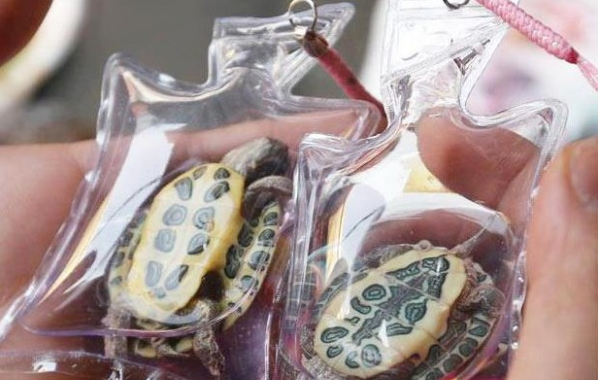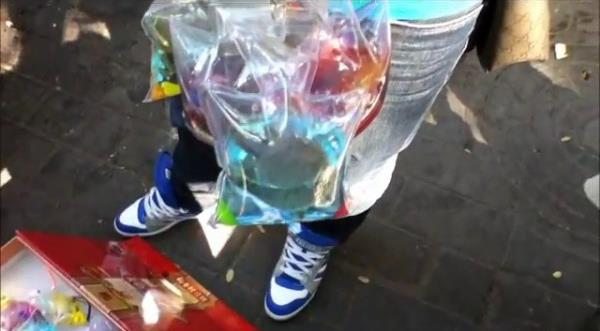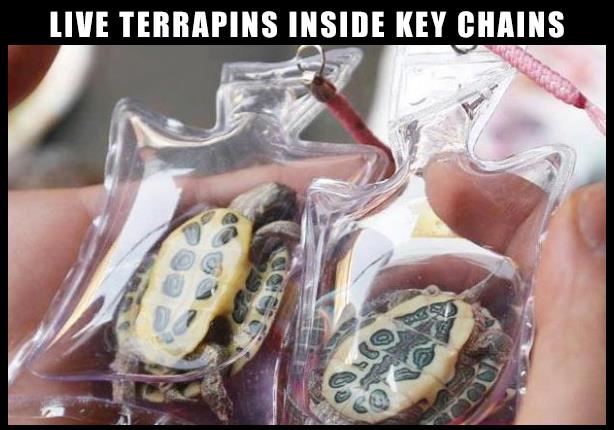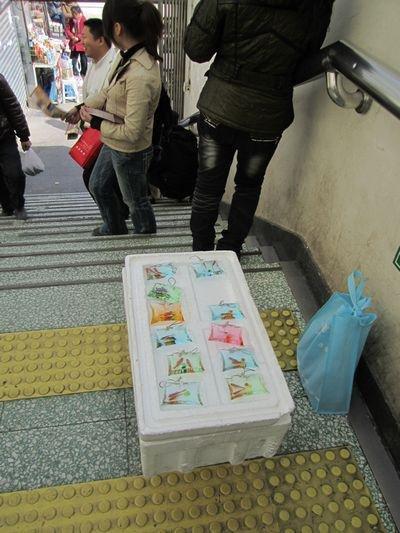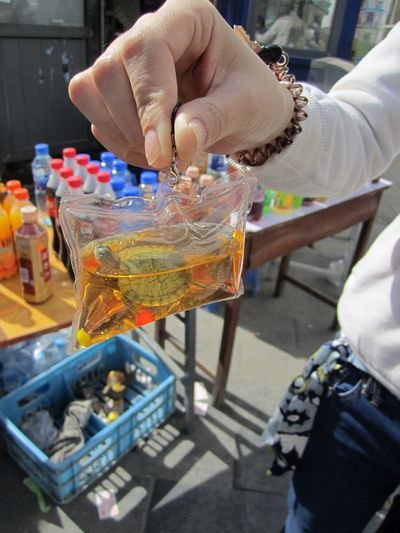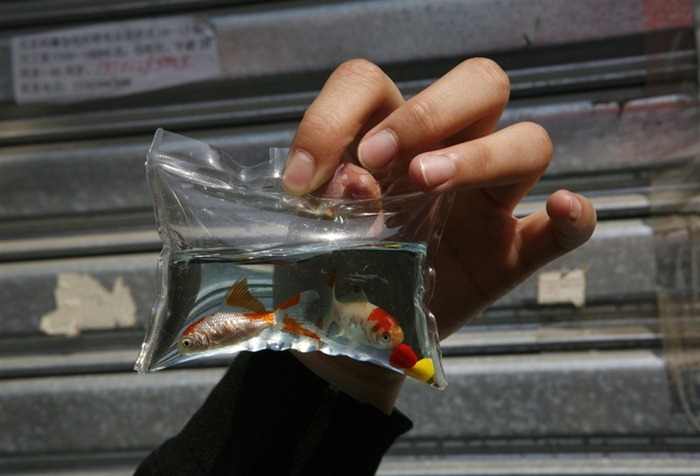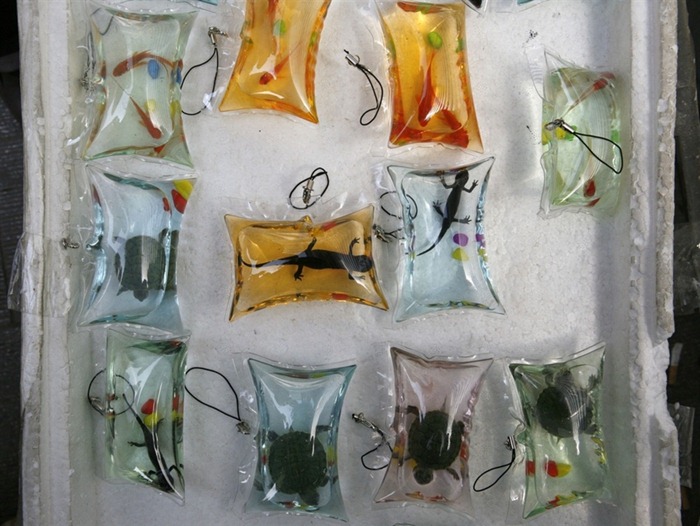Would You Buy These Key Chains?
The hottest fad in China now is selling live fish, terrapins and baby salamanders that are sealed in airtight plastic bags and made into key chains. Street vendors claim the water is rich in nutrients, but this is apparently not true. Without oxygen and food the animals get to live for only a few days, if they are lucky. The most depressing part is, this is legal. Would you buy this if you see it in Malaysian stalls one day?
Cute? No. Live Terrapins inside key chains
According to a description on the Ocean Story website, each packet is a mere 7cm in length, and is filled with coloured water along with the imprisoned live creature.
Without oxygen and food the animals get to live for only a few days, if they are lucky. The most depressing part is, this is legal.
Other cases of key chains with live animals inside
The country has a Wild Animal Protection Law which applies only to wild animals. Fishes and reptiles do not fall under this category and hence the law cannot protect them. Animal rights activists are voicing protests against the sale of these keyrings but without a law to back them there is little that can be done.
Image via cloudfront.netTwo gold fish sealed in plastic pouches and sold as keychains are displayed at a roadside stall in Beijing, China on April 12. Each keychain is sold for 10 yuan (USD $1.50).
Image via ggpht.comLiving keychains containing small turtles and king fish are currently sold in China, despite protests from animal activists
Animal cruelty laws are almost non-existent in China. It was only just recently that the country banned animal in circuses where they are made to perform unimaginable tricks. Animal meat are also exotic entrees at zoo restaurants.
Image via ggpht.comAnimal rights groups are appalled by a new popular trinket being sold on the streets of China - live animal key rings.
nzherald.co.nzThe keyrings are being sold mainly to children in Qingdao, the city hosting the sailing events.
A new low in animal cruelty, China is selling key chains, containing a nutrient enriched solution that they claim will allow the animal to survive for up to 2 months.
Chinese vendors have been selling pretty depressing keychains that consist of either a Brazil turtle or two small kingfish sealed inside a small plastic baggy.
The key chains are becoming increasingly popular around elementary schools, where they are marketed to students from the stationary shops surrounding campus. They sell for as little as 5 kuai.
Each baggy, seven centimeters in length, is filled with colored liquid and the imprisoned animal(s) of choice.
The fact that they’re not illegal makes them even worse, as China only has a Wild Animal Protection Law, under which these keychains do not happen to fall.
Animal protection law of the People's Republic of China
The animal protection law of the People's Republic of China is a draft of an animal protection law in China released on September 18, 2009.
The draft was authored by Chang Jiwen, director of social law research department at the Chinese Academy of Social Sciences. It has yet to be fully adopted.
The draft law outlines guidelines for disease prevention & med. care for animals. It covers wildlife, farm, companion, lab, and work animals. If enacted, it would outlaw dogs & cats consumption

